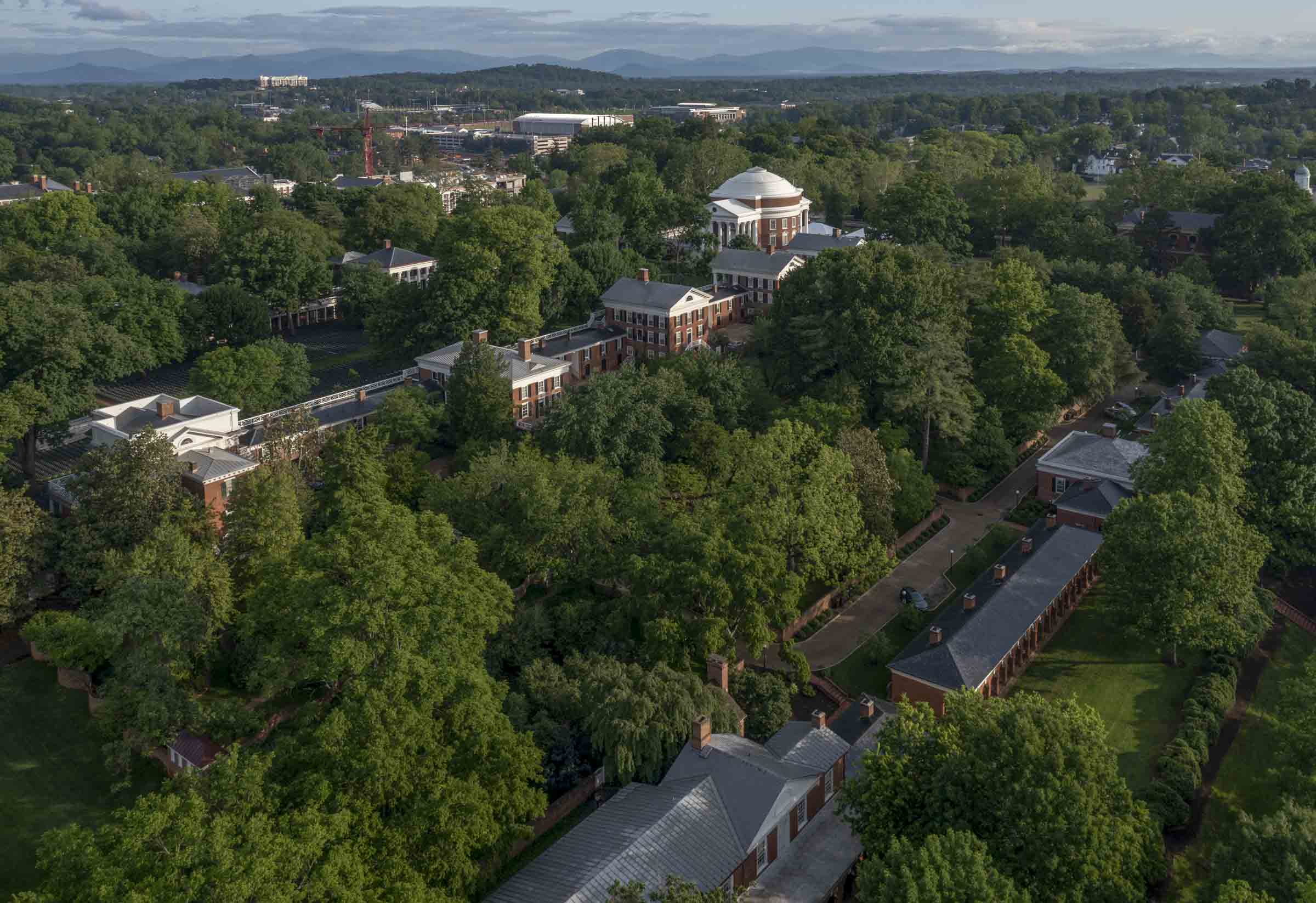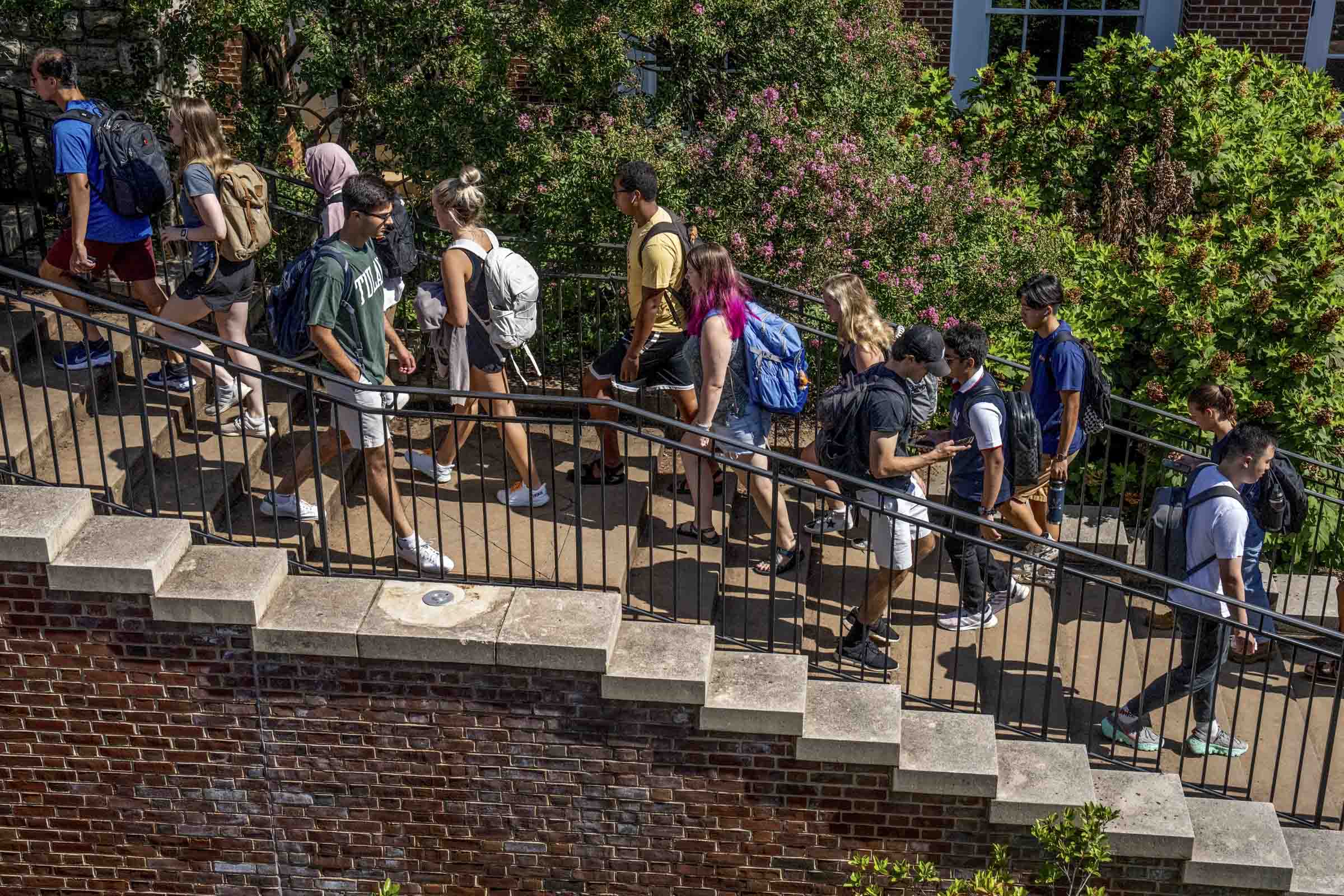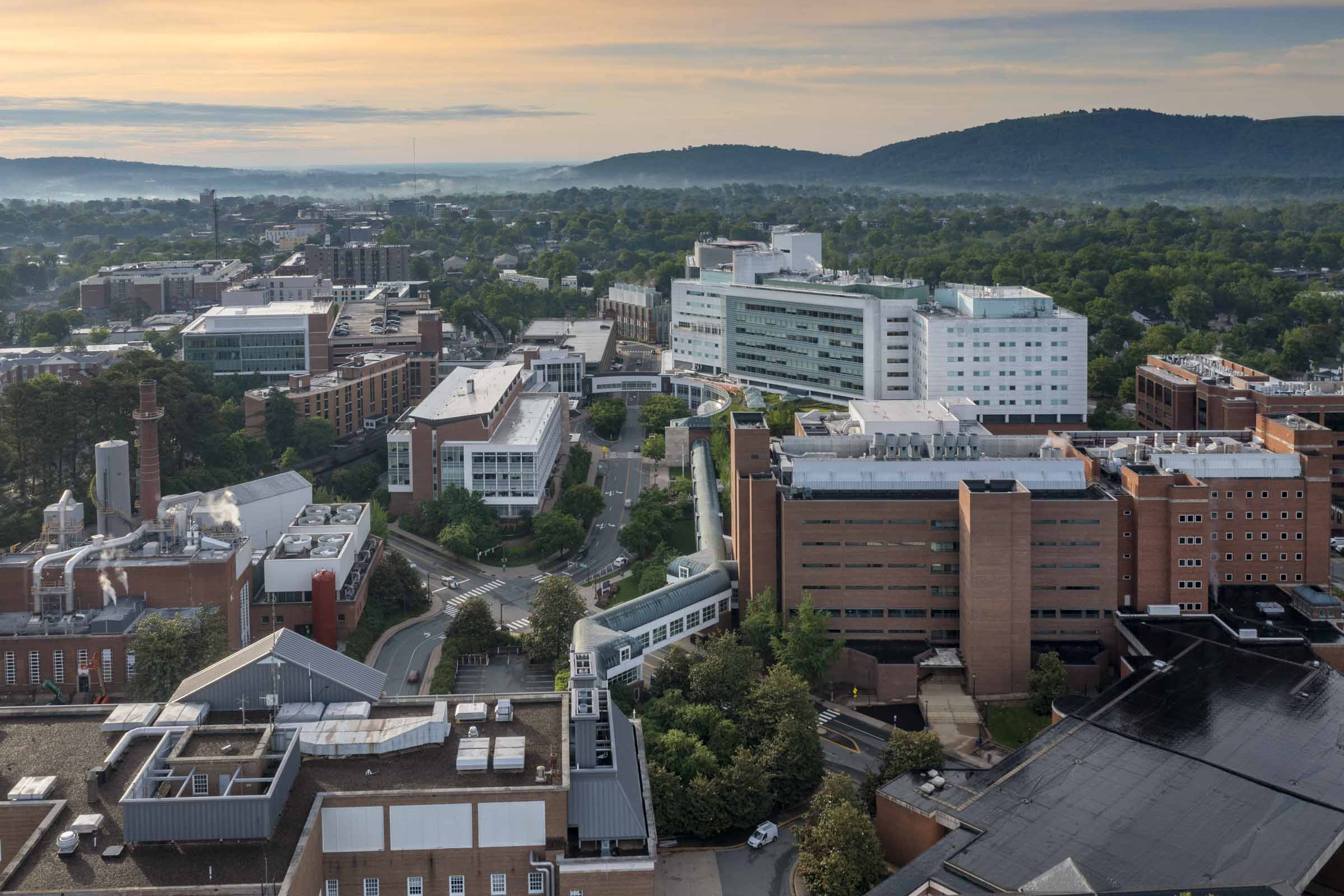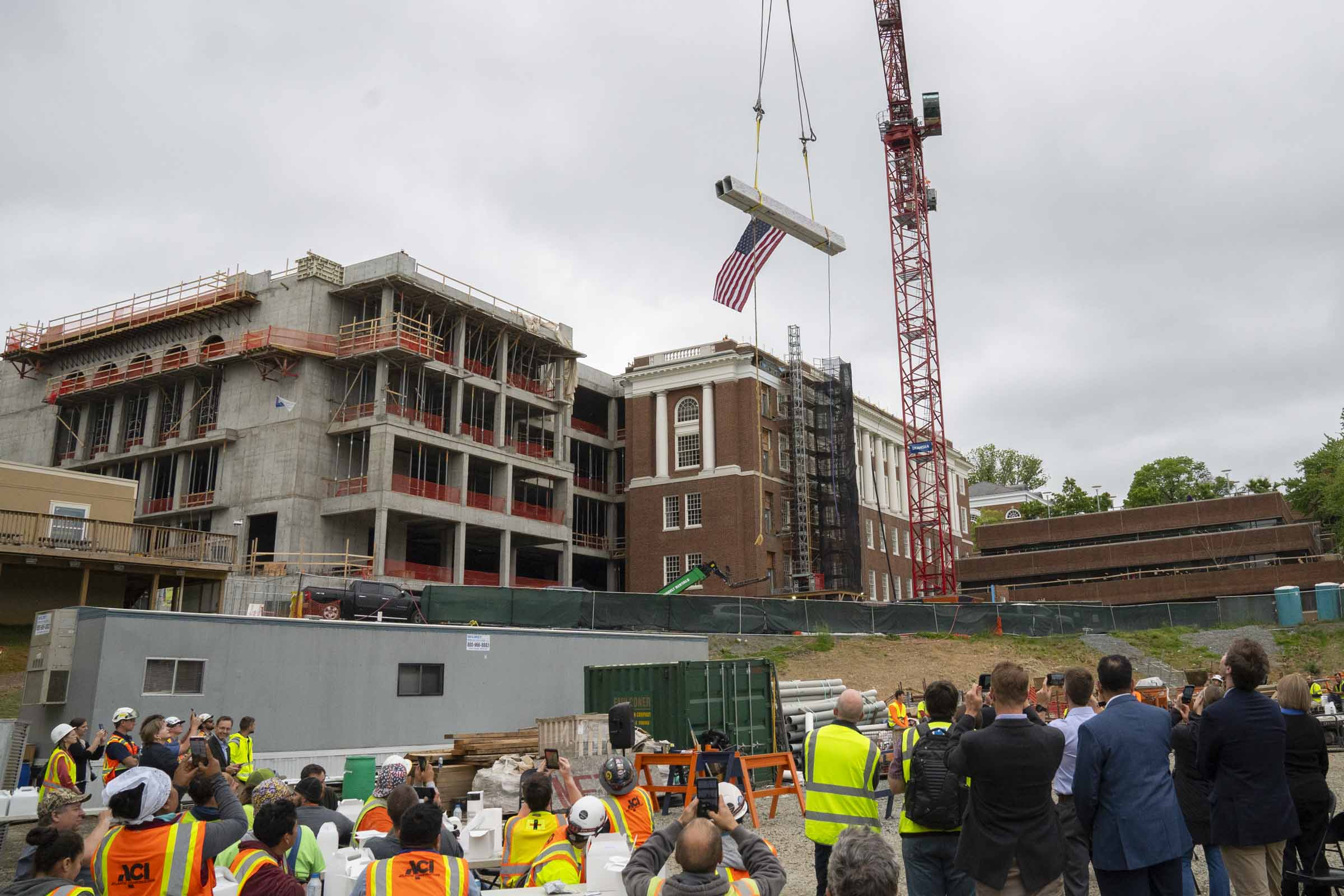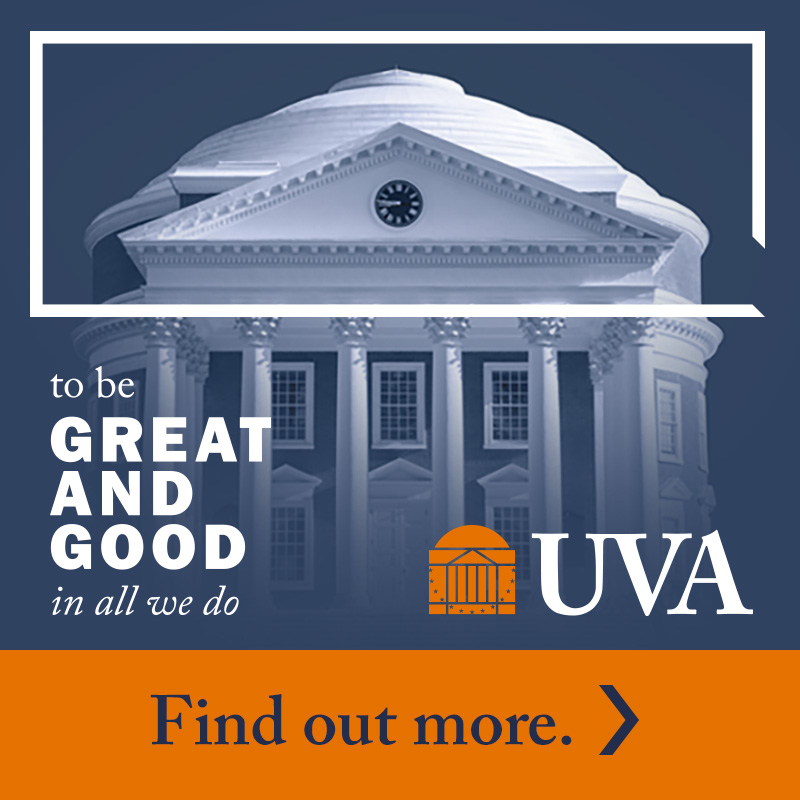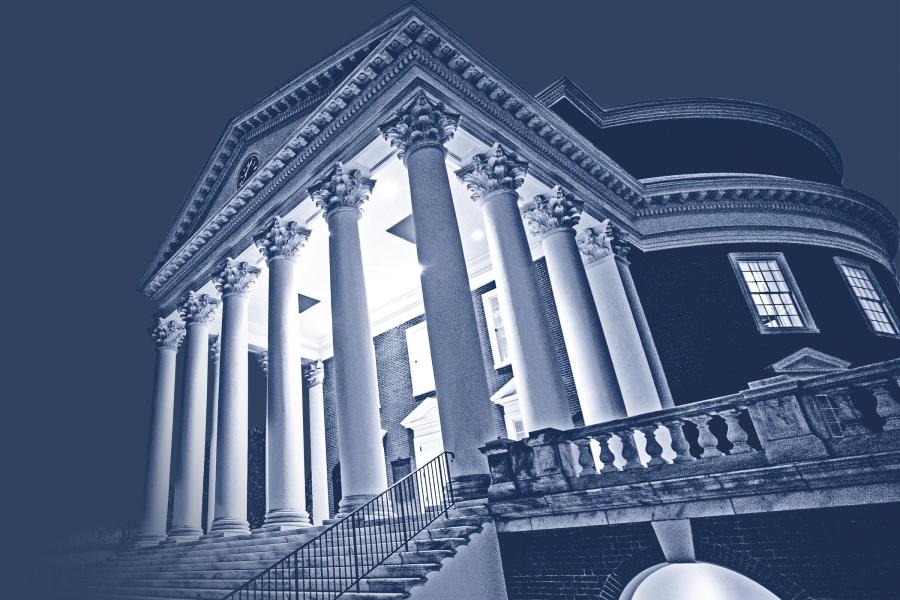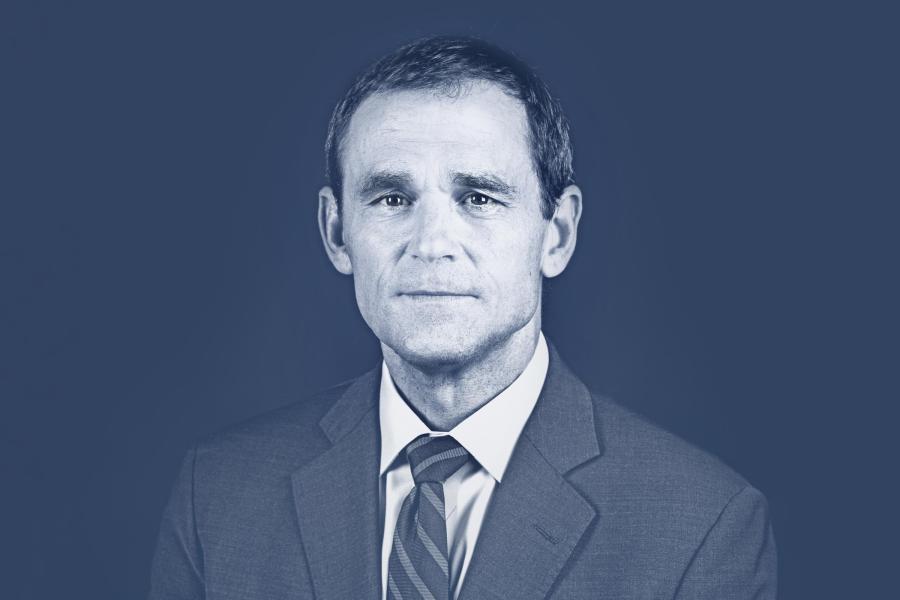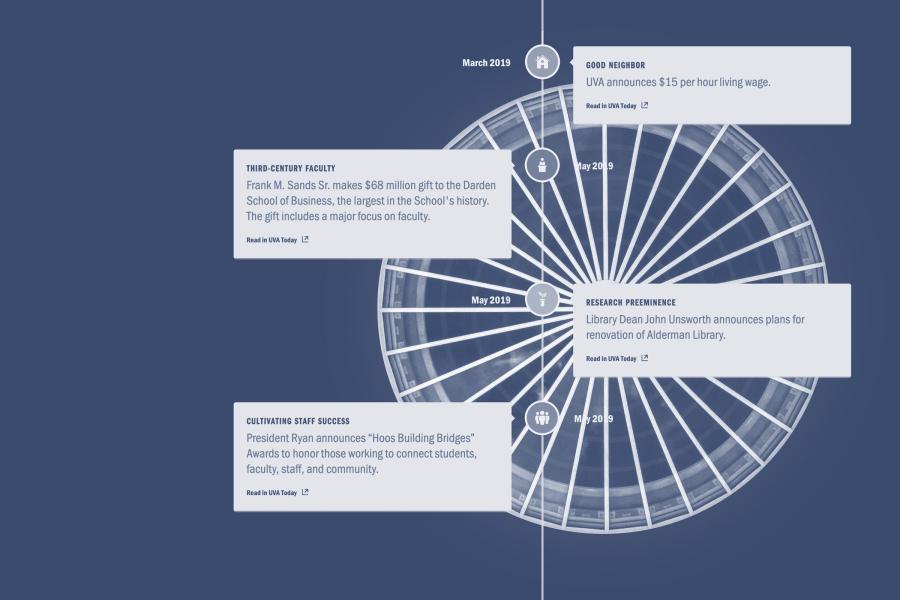Private philanthropy has played a key role in supporting the University of Virginia’s strategic plan. Its goal – to make UVA the best public university by 2030 and one of the best universities anywhere, public or private – requires substantial resources to enable ambitions to become reality.
The $5 billion Honor the Future campaign, publicly announced in 2019 under President Jim Ryan’s direction, has since generated extraordinary support for the initiatives and goals in “Great and Good: The 2030 Plan,” raising nearly $4.3 billion in private philanthropy to date.
This is the most significant philanthropic success in the University’s history.
“Through the Honor the Future campaign, generous commitments from our community are advancing the 2030 strategic plan, and helping us continue our academic and health care missions,” Ryan said. “The University’s fundraising successes indicate a high level of commitment and devotion among our community that is essential to making our goals a reality. I’m incredibly grateful for the investment in UVA’s future.”

